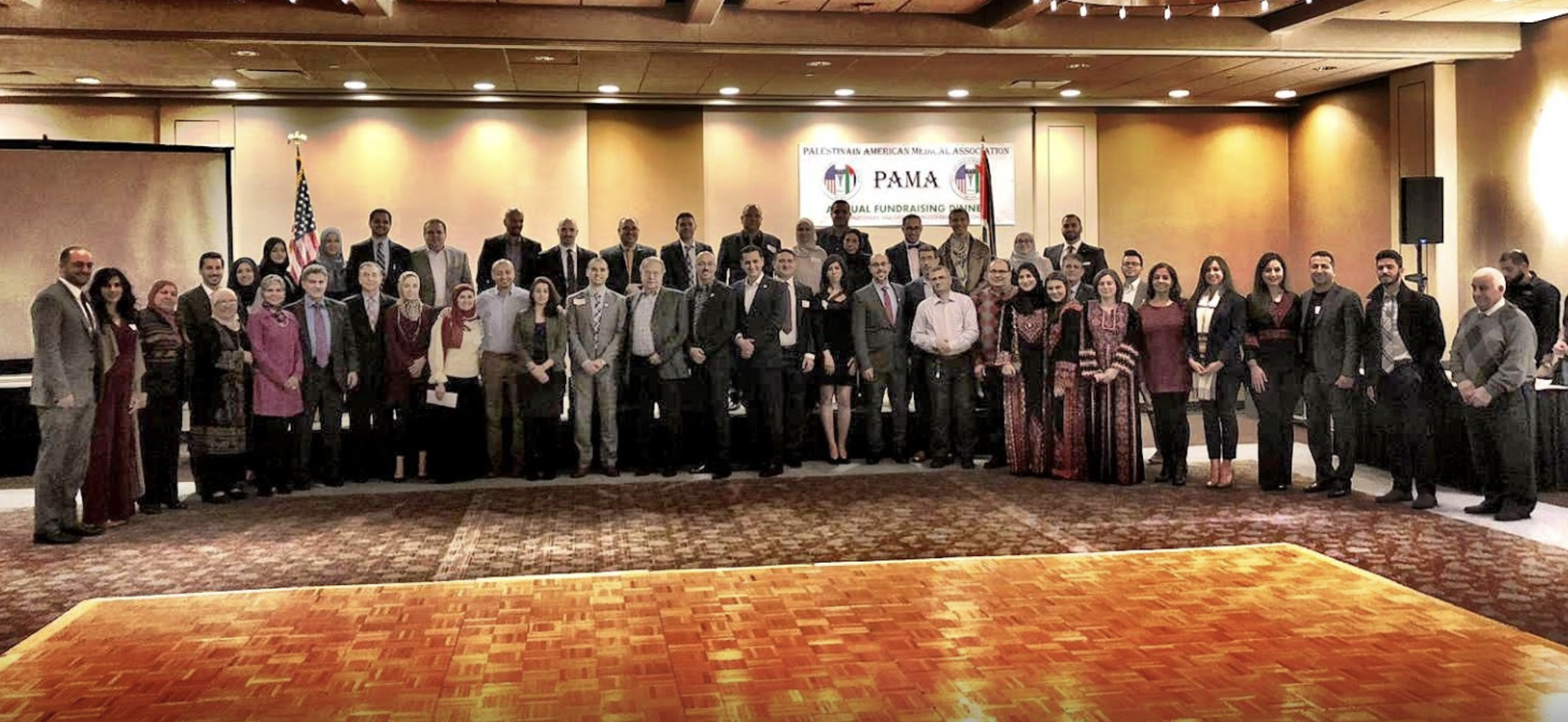It is hard to think of a time in world history when health partnerships were more important than they are today. That is why GKCIC leadership accepted immediately and enthusiastically the invitation to participate in this year’s dinner on behalf of (PAMA) the Palestinian American Medical Association.
The dinner was held Saturday evening, February 29th at the Doubletree Hotel in Overland Park with GKCIC Chair Rev. Kelly Isola offering a heartfelt keynote address. She focused on the importance of reaching beyond particular ethic and religious groupings to work with others on making this world a better, safer and healthier place in which to live. In Reverend Isola’s view, the high level and variety of demands that characterize modern life require timely and effective responses that are multi-ethnic and multireligious in their design. This concept has become a major operating principle at the Greater Kansas City Interfaith Council.
Kansas City’s most immediate link to PAMA is through their current president and UMKC instructor Doctor Majdi Hamarshi. While born in the Middle East, Hamarshi has graduated from several medical programs in the United States. He considers an American education to be the best education a health provider can have. One of PAMA’s priorities since its 2013 inception has been to help Palestinian students attain highly valued medical training and academic degrees from American universities. In addition to this, PAMA has raised funds to help purchase such medical equipment as kidney dialysis machines for use in Palestinian territories.
One can learn more about the range of important challenges PAMA has taken on by visiting their palestinian-ama.org website, and by reading reports issued by international organizations that monitor health conditions around the world. The World Health Organization (WHO) published a report last year that cited the existence of “health inequalities” which result in higher morbidity and mortality rates for Palestinians living in the West Bank and Gaza than for non-Palestinians residing nearby.
The Middle Eastern food, Palestinian dancers and Arabic speaking comedians all did much to add to the festivities of the February 29 dinner program. Taken together, they all helped the attendees take a short break from the grim news reports of the COVID-19 pandemic that was taking more and more lives in more and more countries. Hours prior to the start of the dinner, the newly formed White House Coronavirus Task Force met for the first time. The meeting concluded with a press conference that indicated how much more there would be to learn, do and endure.
At the time of the dinner, news was coming out of the Arab world that for the first time in memory, holy sites in Mecca and Medina were being closed to foreigners. This was being done in response to the spread of COVID-19. The highest number of Middle Eastern coronavirus cases have come from Iran.

